Interview with Nayat Sánchez-Pi, director of Inria in Chile
The potential for the development of AI and machine learning is very high in Latin America.
AI can accelerate progress in Latin America, but it can also deepen the social divide. We will discuss opportunities, challenges, and a possible roadmap for AI for the social good in Latin America.
AI can accelerate progress in Latin America, but it can also deepen the social divide. We will discuss opportunities, challenges, and a possible roadmap for AI for the social good in Latin America.



Nayat Sanchez-Pi is currently the Director of the Inria Chile Research Center created in 2012 by Inria, the French National Research Institute for Digital Sciences, to facilitate scientific and industrial cooperation between France, Chile, and Latin America. Before that, she was a professor of Artificial Intelligence and Human-Computer Interaction at the Department of Informatics and Computer Science of the Institute of Mathematics and Statistics of the Rio de Janeiro State University. She also co-led the Research on Intelligence and Optimisation Group (RIO). Her research interests have broadened over the years and span topics that range from artificial intelligence, machine learning and data mining to ambient intelligence, ubiquitous computing, and multi-agent systems.
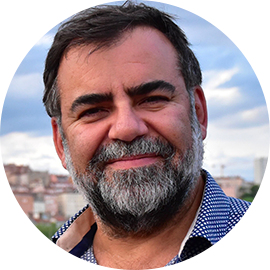


Ricardo Baeza-Yates is Director of Research at the Institute for Experiential AI of Northeastern University, USA. He is also a part-time professor at Universidad de Chile in Santiago. Before he was VP of Research at Yahoo Labs, based in Barcelona, Spain, and later in Sunnyvale, California, from 2006 to 2016. He is co-author of the best-seller Modern Information Retrieval textbook published by Addison-Wesley in 1999 and 2011 (2nd ed), that won the ASIST 2012 Book of the Year award. From 2002 to 2004 he was elected to the Board of Governors of the IEEE Computer Society and between 2012 and 2016 was elected to the ACM Council. Since 2010 is a founding member of the Chilean Academy of Engineering. In 2009 he was named ACM Fellow and in 2011 IEEE Fellow, among other awards and distinctions. He obtained a Ph.D. in CS from the University of Waterloo, Canada, in 1989, and his areas of expertise are web search and data mining, information retrieval, bias and ethics on AI, data science and algorithms in general.
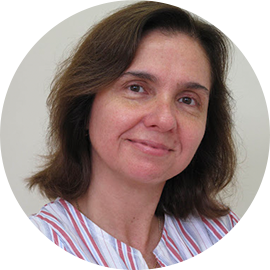


Marley Vellasco is a full professor at the Pontifical Catholic University of Rio de Janeiro (PUC-Rio). She received the BSc and MSc degrees in Electrical Engineering from PUC-Rio and the PhD degree in Computer Science from the University College London. Her research interests are related to Computational Intelligence methods and applications, including Neural Networks, Fuzzy Logic, Evolutionary Computation, Hybrid Intelligent Systems and Explainable AI. She is the author of five books and more than 400 scientific papers in soft computing and machine learning. She has supervised more than 40 PhD Thesis and 90 MSc Dissertations and has coordinated more than 50 research projects with industries, some of them resulting in Technology Innovation prizes. She is currently Vice-President for Conferences of the IEEE Computational Intelligence Society.
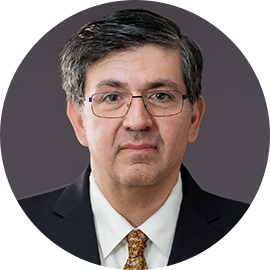


Carlos A. Coello Coello received a PhD in Computer Science from Tulane University (USA) in 1996. He currently has over 500 publications which, according to Google Scholar, report over 58,700 citations (with an h-index of 96). He is currently a Full Professor with distinction at the Computer Science Department of CINVESTAV-IPN in Mexico City, Mexico. Since January 2011, he is an IEEE Fellow. He specializes on the design of metaheuristics for solving nonlinear multi-objective problems. Since January 2021, he is the Editor-in-Chief of the IEEE Transactions on Evolutionary Computation.
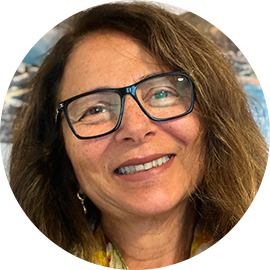


Cristina is full Professor at the Federal University of the State of Rio de Janeiro (UNIRIO). She holds a Ph.D. in Engineering, from Stanford University (1992). From 1994 to 2017, she was a CS professor at Universidade Federal Fluminense (UFF). At UFF, she founded and coordinated (1996-2017), the ADDLabs, an applied AI lab. At ADDLabs, she developed, with her team, 30 R&D projects for the petroleum industry. She has advised 36 M.Sc. and 11 Ph.D. students. She is deeply committed to developing AI research that improves the well-being of society. Her current research interest involves AI Ethics.
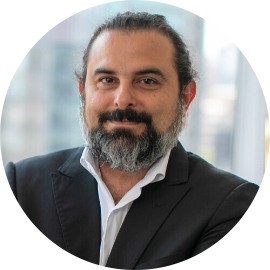


Luis is currently research director at Inria Chile, the Chilean Center of Inria, the French National Institute for Computational Sciences. Before that, he was a senior researcher of the TAU team at Inria Saclay since 2015. He was also an Adjunct Professor (tenured) at the Institute of Computing of the Universidade Federal Fluminense. Previous to that, Luis was a CNPq Young Talent of Science Fellow at the Applied Robotics and Intelligence Lab of the Department of Electrical Engineering of the Pontifícia Universidade Católica do Rio de Janeiro, Brazil. Luis did his PhD at the Group of Applied Artificial Intelligence of the Department of Informatics of the Universidad Carlos III de Madrid, Madrid, Spain and got his Computer Science degree from the University of Havana. He is mainly interested in artificial intelligence, and, in particular, machine learning, neural networks, evolutionary computation, optimisation, machine learning, hybrid systems and all
If we want ensure that AI in the upcoming years is a positive factor of the development of Latin America we need to start acting now and stop doing the same thing over and over again. The recent past and the current context in the region clearly indicates that it is unlikely that we see any improvements in the resources and support that AI has, instead, it will probably be aggravated by the impact of the COVID-19 pandemic. Consequently, it is our role as researchers to visit this issue and attempt to propose a road map towards a solution.
The driving motivation for this paper is to plant the seeds of a discussion on how to create a bottom-up and inclusive positive momentum for AI in the region, given the existing conditions, while, at the same time, reducing the potential negative impacts that it might have. We present this in the form of a roadmap or workflow that identifies the main obstacles that should be addressed and how they can be overcome by a combination focusing the work AI practitioners on particular research topics and that of decision markers and concern citizens.
Download
Check out AILA's first session slides for AI in Latam
AI can accelerate progress in Latin America, but it can also deepen the social divide. We will discuss opportunities, challenges, and a possible roadmap for AI for the social good in Latin America.
Download SlidesThe potential for the development of AI and machine learning is very high in Latin America.